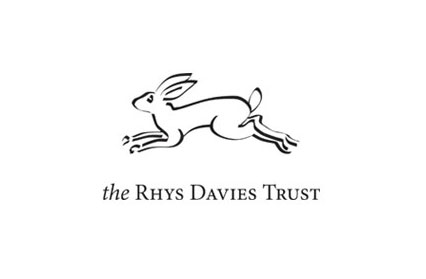Rhys Davies was and perhaps is the Welsh short story writer. In his day he was praised by everyone from John Betjeman to D.H. Lawrence, from Muriel Spark to that Irish master of the form, William Trevor. He won the Edgar Award for the Best Short Story published in the United States in 1966, and appeared regularly in the The New Yorker, something that is indicative of the high esteem with which the literary world as a whole regarded him at that time. And yet, despite his status as arguably our greatest practitioner of short fiction, his works are sadly not as widely read as they once were.
It is partly for this reason, and partly out of a desire to encourage and promote new short fiction in Wales, that last year, in connection with The Rhys Davies Trust, Wales Arts Review published a series of stories by some of the best known names in Welsh literature, as well as by some of the most promising.
Like the majority of the best Davies’ short stories, these pieces were all set in Wales. But like Davies, who memorably declared ‘A curse on flag-waving’, these stories were not in any way interested in parochialism, but rather in offering true reflections of society. That they are all set in Wales is not incidental but importantly, it is also not defining.
Out of this prerequisite that all the stories be set in Wales, grew a desire to attempt to chart a Fictional Map of Wales. A map studded with stories, which either directly or indirectly, illuminate the place in which they are set, and tell us something about what it is to be alive in that location in the twenty-first Century. Rachel Trezise told us about ‘The Abergorki Long Veg Growing Society’ (a piece which has, incidentally, been recently dramatised for radio by the BBC), Cynan Jones took us to the austerely beautiful West Wales landscape of ‘Aberarth’ and Jon Gower gave us ‘Some Killing on Cydweli Flats.’ Meanwhile the deeply promising new writer Georgia Carys Williams told us of a ‘Swansea Malady.’
This year our search continues, and we are delighted to begin 2014 with a new story by one of Wales’ foremost contemporary voices, the acclaimed novelist, short story writer and academic, Stevie Davies. In ‘Tuner of Llangyfelach’, Davies examines both the personal history of her characters as well as the social history of South Wales, and finds the two to be inextricably linked. She introduces us to a narrator whose father was ‘puzzled that the root of love should turn out so cloven’. As in her devastating recent novel, Awakening, Davies is more concerned here with the roots of who we are both as individuals and as a society, rather than in the surface level dazzle which perpetuates so much of contemporary fiction. It is a stunning example of that medium which her namesake, Rhys Davies, once described as being formed out of ‘the lapses into disorderliness of mind and the hidden impulses which provide… tiny, concentrated explosion[s]’.
And there will be many more of these ‘concentrated explosion[s]’ to come. We will be once again publishing a brand new story at the end of each month throughout 2014, and once again it will be from an array of talent ranging from the internationally renowned to the supremely promising. From February onwards we will also be introducing an interview with each author, while a number of readings from the series is planned for later in the year. And, of course, each story will be entirely and exclusively free to read here, online at Wales Arts Review.












